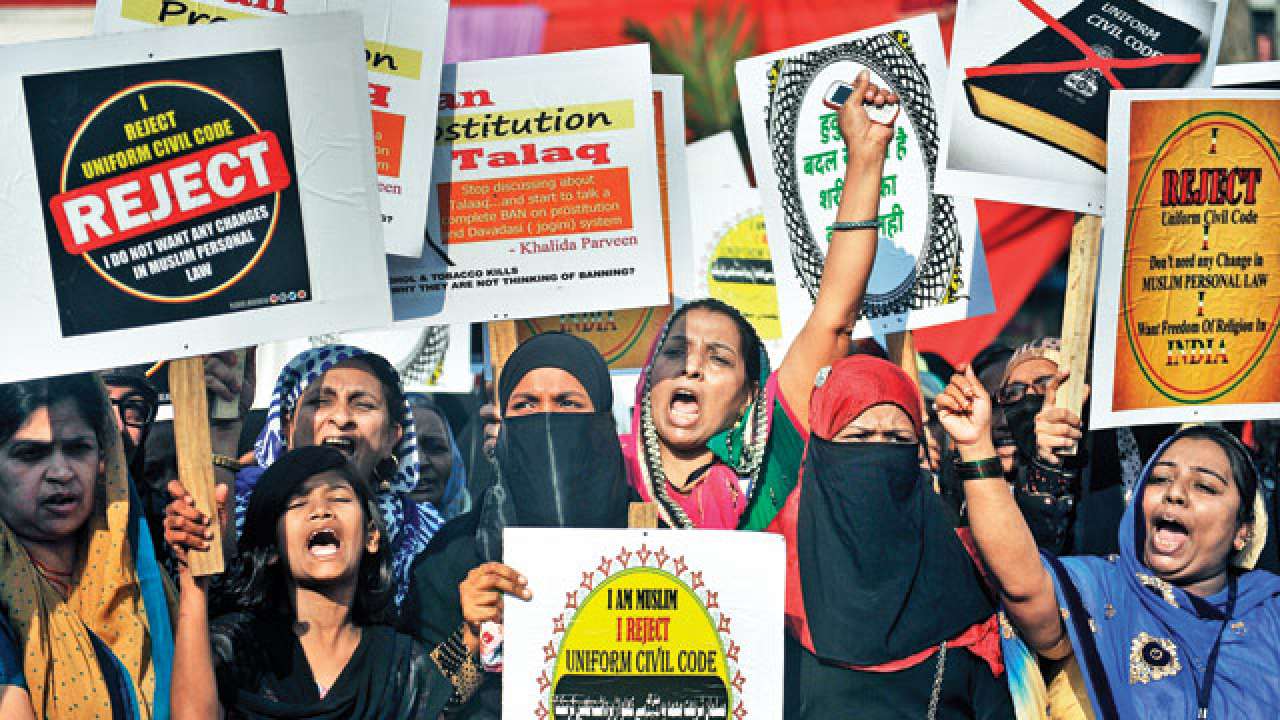The fault lines in our society
- Select a language for the TTS:
- UK English Female
- UK English Male
- US English Female
- US English Male
- Australian Female
- Australian Male
- Language selected: (auto detect) - EN

Play all audios:

All personal laws must be codified under a uniform national law in keeping with the true spirit of secularism The debate on UCC has reached a decisive moment, despite facing severe
opposition from the Muslim community since Independence The men and women who wrote our Constitution 67 years ago had a clearer idea of secularism than most political leaders do today. To
them, secularism meant equal treatment for all religions, preferential treatment for none. Separate personal religious laws violate this civilised definition of secularism. Dr Babasaheb
Ambedkar said as far back as in March 1947, when the Constituent Assembly had begun a preliminary drafting of the Constitution, that all citizens should have the right “to claim full and
equal benefit of all laws and proceedings for the security of persons and property as is enjoyed by other subjects regardless of any usage or custom based on religion and be subject to like
punishment, pains and penalties and to none other.” In short, all personal laws — Hindu, Muslim, Sikh and others — must be codified under a uniform national law. The argument for ‘one
nation, one law’ dates back to several months before Independence. As the Constituent Assembly began deliberating on this contentious issue, the Fundamental Rights Committee made a strong
pitch for superseding archaic personal laws, some based on the Sharia, others on antiquated Hindu practices. Ambedkar and his colleagues in the drafting committee received immediate
opposition from Muslims. Hindus and Parsis were more sanguine. The distinguished Parsi libertarian Minoo Masani, a member of the Fundamental Rights Committee, wrote that it was the State’s
duty to replace personal religious laws with a universal common code. His colleague on the committee, Kanhaiyalal Munshi, another distinguished lawyer and conservative Hindu leader (who
today would be called a Hindutvawadi by ignorant journalists), was even more robust in advocating uniform personal laws for all religions, including Hinduism. He said, “No civil or criminal
court shall, in adjudicating any matter or executing any order, recognise any custom or usage imposing any civil disability on any person on the ground of his caste, status, religion, race
or language.” Muslim objections, led by Mohammad Ali Jinnah (a Shia Khoja who drank Scotch, ate pork, and never prayed), were endorsed by Jawaharlal Nehru who bought Jinnah’s argument of
‘the dangers of a Hindu Raj’ if Muslim personal law was interfered with. As a result, Ambedkar, Masani and Munshi’s draft on superseding personal religious laws was made voluntary and
non-enforceable. Secularism tasted its first defeat literally days after Independence on August 25, 1947, when this report, making universal personal religious laws voluntary, was submitted
to the Constituent Assembly. Mahboob Ali Baig, a member of the assembly, warned darkly, “This contract is enjoined on the Mussalmans by the Quran, and if it is not followed, a marriage is
not legal at all. For 1,350 years this law has been practised by Muslims and recognised by all authorities in all states. If today some other method of proving marriage is going to be
introduced, we refuse to abide by it because it is not according to our religion. It is not according to the code laid down for us for all times.” Nehru gave in quickly. Jinnah had
undermined Nehru’s confidence to such an extent that the future prime minister did not even heed Sardar Vallabhbhai Patel’s advice to stay the course. In the 1950s, parts of Hindu personal
law were eventually codified, modernised and gender discrimination removed. But Muslim personal law remains stuck in the medieval Middle East of 1,350 years ago that Mahboob Ali Baig rigidly
wanted Muslims to adhere to. Seventy years after Independence, the debate on UCC has reached a decisive moment. The Supreme Court’s judgement outlawing instant triple talaq (talaq-e-bidat)
is a small step towards reform in Muslim personal law. However, then-Chief Justice JS Khehar made a strange observation in his dissenting order, days before retiring, by placing
talaq-e-bidat outside the purview of fundamental rights guaranteed in Part III of the Constitution. Justice Khehar’s minority dissenting judgement argued, “Religion is a matter of faith, and
not of logic. It is not open to a court to accept an egalitarian approach over a practice which constitutes an integral part of religion. We cannot accept the petitioners’ claim, because
the challenge raised is in respect of an issue of ‘personal law’ which has constitutional protection.” This was triumphantly seized upon by the All India Muslim Personal Law Board (AIMPLB)
to claim its medieval belief that Sharia supersedes the Constitution on Muslim personal laws. Nonetheless, the momentum for UCC is building. The Law Commission has speeded up compiling
public opinion on a uniform civil code. It will submit its report to the government for legislative action. The AIMPLB will contest UCC fiercely. It has always opposed Muslim reform. Only by
keeping their flock blind can the one-eyed continue to exercise power over their benighted fiefdom. _The writer is author of The New Clash of Civilizations: How The Contest Between America,
China, India and Islam Will Shape Our Century_